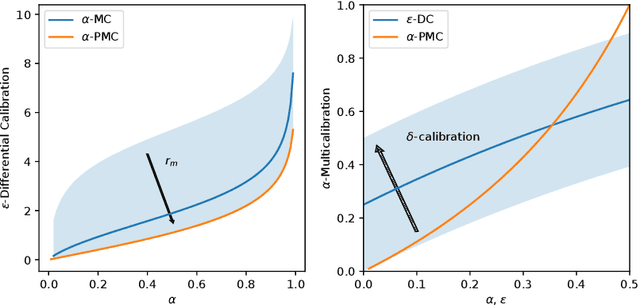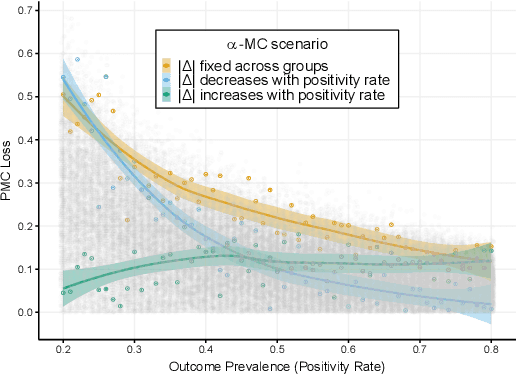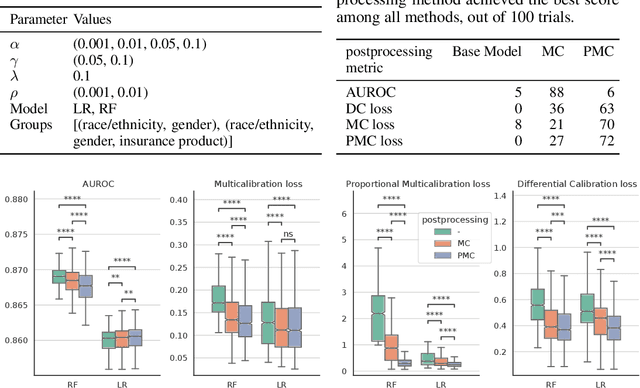Elle Lett
Proportional Multicalibration
Sep 29, 2022



Abstract:Multicalibration is a desirable fairness criteria that constrains calibration error among flexibly-defined groups in the data while maintaining overall calibration. However, when outcome probabilities are correlated with group membership, multicalibrated models can exhibit a higher percent calibration error among groups with lower base rates than groups with higher base rates. As a result, it remains possible for a decision-maker to learn to trust or distrust model predictions for specific groups. To alleviate this, we propose proportional multicalibration, a criteria that constrains the percent calibration error among groups and within prediction bins. We prove that satisfying proportional multicalibration bounds a model's multicalibration as well its differential calibration, a stronger fairness criteria inspired by the fairness notion of sufficiency. We provide an efficient algorithm for post-processing risk prediction models for proportional multicalibration and evaluate it empirically. We conduct simulation studies and investigate a real-world application of PMC-postprocessing to prediction of emergency department patient admissions. We observe that proportional multicalibration is a promising criteria for controlling simultenous measures of calibration fairness of a model over intersectional groups with virtually no cost in terms of classification performance.
 Add to Chrome
Add to Chrome Add to Firefox
Add to Firefox Add to Edge
Add to Edge